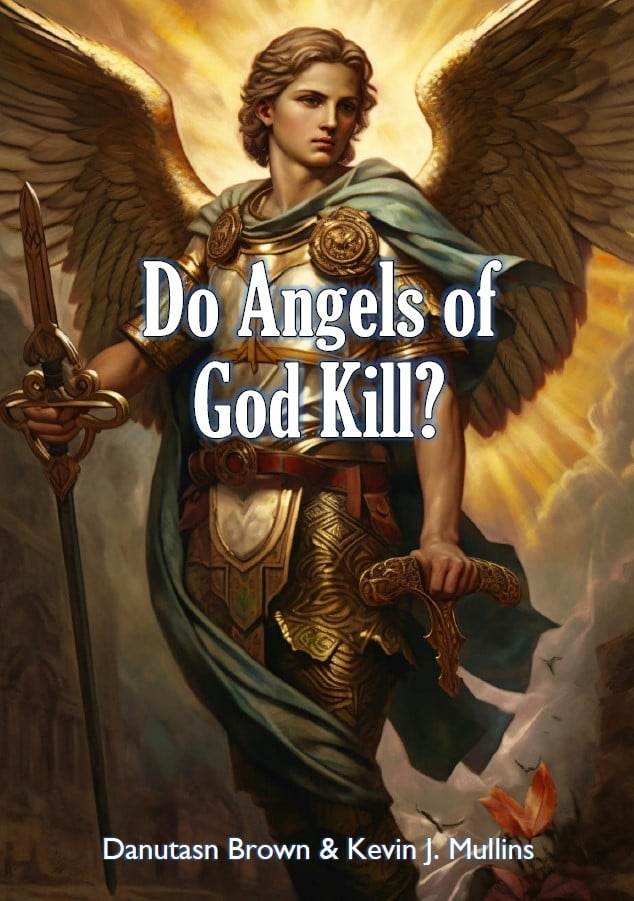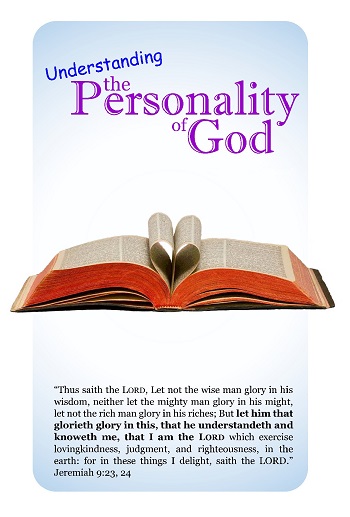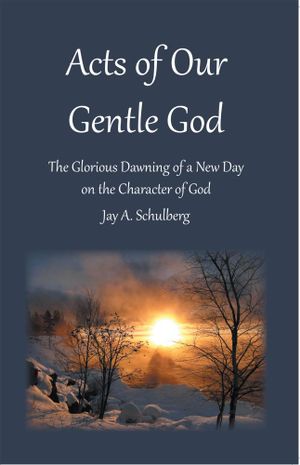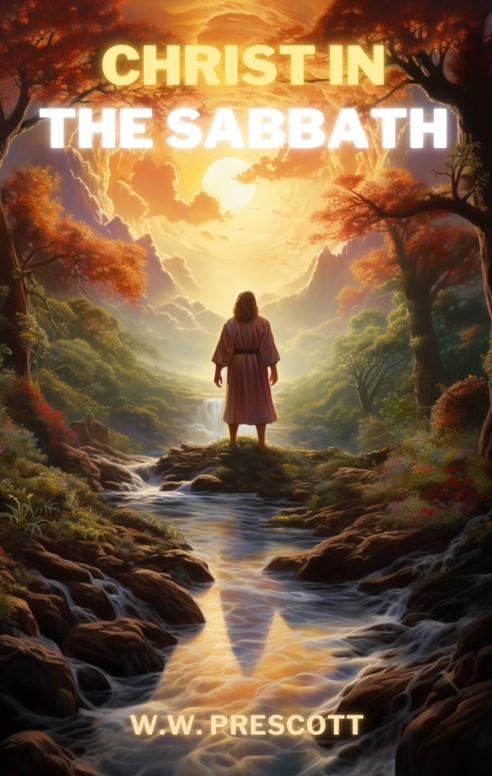Lessons from the Reformation on Liberty and Order (By D'Aubigne)
On this website we share information that we hope will help all Christians, regardless of denomination. But the reader may think: “it goes against what other people in my church believe.” We sympathize with that, and do believe God wants His church to be one body and in agreement. He wants us to respect authority and not cause trouble for the sake of trouble. But we must also admit that there is a lot of confusion in Christianity, and diverse manner of beliefs not only between denominations, but even individuals of the same denomination.
Furthermore, our answers to outsiders and skeptics often tend to not be so persuasive. We have trouble answering even our own children. Yet when we seek for answers and find them, we can become proud, as it says: “knowledge puffeth up…” (2 Corinthians 8:1) We can even become angry as we feel we have been misled regarding what the scripture says, blaming others instead of realizing that we humans are flawed. Much prayer needs to be done on this.
One thing that helps is history, and how are forefathers dealt with differences. The following is an excerpt from Jean-Henri Merle D’Aubigne’s classic History of the Reformation in the Time of Calvin. It is a sweeping masterpiece, addressing the interplay of great historical forces with individual characters and conscience. D'Aubigne (1794 – 1872) was one of the most revered historians of the 1800s, lecturing even to Queen Victoria. Imagine public addresses to our leaders by a historian today! We don’t have that same reverence for history anymore, especially using history as a channel to understand the nature and condition of man.
Many people see change and new ideas as dangerous. So did the upholders of the Papacy when confronted by principles of the Reformation. God understands our worries, and pities our nature that so easily leads to war and strife. I pray that some of these thoughts from D’Aubigne may bless the reader and give them wisdom on how to take the ideas that are to lighten the earth before Jesus comes to their fellow believers. Not only the concepts themselves, but also HOW to share, whether from a lower position or a higher position of authority in their church family.
D’Aubigne compares regular Christians to children, and the church as parents, and parents need to know how to let their children think for themselves, and children need to know how to respect their parents even when they disagree or want to reform how the family is structured. The question of authority is central to Christianity, for God is an authority, and our relation to Him determines are relation to human authority – whether police, government, teachers, traffic signs, laws, etc. Yet we also know that being true to God often means going against established human authorities, and that is very tricky. This was the great struggle of Luther and the Reformation, and may D’Aubigne’s reflections on it bless you as you think about how reform is to happen in your own life and how to share that reform with those around you. He articulates a problem in how to have a proper relationship between "community" and "individuality" that has yet to be resolved, which we think is resolved in the Divine Pattern.
“The first half of the sixteenth century was the epoch of a great transformation to the people of Europe; there had been nothing like it since the introduction of Christianity. During the Middle Ages, the pope was the guardian of Christendom, and the people were infants, who, not having attained the necessary age, could not act for themselves. The pontifical hierarchy opened or shut the gates of heaven, laid down what every man ought to believe and do, dominated in the councils of princes, and exercised a powerful influence over all public institutions.
But a wardship is always provisional. When a man attains his majority [note: hereafter I change this to ‘maturity’], he enters into the enjoyment of his property and rights, and having to render an account to none by God, he walks without guardians by the light which his conscience gives him. There is also a time of maturity of nations, and Christian society attained that age in the sixteenth century. From that moment it ceased to receive blindly all that the priests taught; it entered into a higher and more independent sphere. The teaching of man vanished away; the teaching of God began again. Once more those words were heard in Christendom which Paul of Tarsus had uttered in the first century: ‘I speak as to wise men; judge ye what I say.’ (1 Corinthians 10:15) But it must be carefully observed that it was by throwing open the Bible to their generation that the reformers realized this sentence. If they had not restored a heavenly torch to man, if they had left him to himself in the thick shadows of the night, he would have remained blind, uneasy, restless, and unsatisfied [note: this is why we must share fresh light from the Bible, throwing it open, because without it man is descending into a restless darkness].
The holy emancipation of the sixteenth century invited those who listened to it to draw freely from the divine Word all that was necessary to scatter the darkness of their reason and fill up the void in their hearts. Elevating them above the goods of the body, above even arts, literature, science, and philosophy, it offered to their soul eternal treasures – God Himself. The Gospel, then restored to the world, gave an unaccustomed force to the moral law, and thus conferred on the people who received it two boons, - order and liberty, -- which the Vatican has never possessed within its precincts. [we see that without the gospel, there is no force to moral law, and that is why there is an ongoing disintegration of “order and liberty”]
All men, however, did not understand that the maturity which each must necessarily attain individually is at the same time essential to them collectively, and that the Church in particular must inevitably attain it [thus our individual quest for truth, in the spirit of love, is food for the collective also]. There were many, among those who were interested in the prosperity of nations, who felt alarm at the abolition of the papal guardianship. They saw that this stupendous act would work immense changes in the sphere of the mind; that society as a whole, literature, social life, politics, the relations of foreign countries with one another, would be made new. This prospect, which was a subject of joy to the greater number, excite the liveliest apprehensions in others. Those especially who had not learn that man, as a moral being, can only be led by free convictions, imagined that all society would run wild and be lost if that power was suppressed which had so long intimidated and restrained it by the fear of excommunications and the stake.
These men, alarmed at the sight of the free and living waters of reform and wishing at any cost to save the nations of Europe from the deluge which appeared to threaten them, thought it their duty to confine them still more, to restore, to strengthen and raise the imperiled dikes, and thus keep the stagnant waters in the foul canals where they had stood for ages. [Are we guardians of modern Christendom doing the same thing, as we demand people submit and remain loyal to the creeds of our respective churches?]
The year is 1535. It is 16 years since 1519 when Martin Luther began the Reformation in Europe. Much of northern Europe has accepted its principles, but the greatest nation in Europe – France – has rejected it. Often its king, Francis I, seems sympathetic to it, being a man of taste and culture and disliking the malfeasance of the priests. But he worries that it will shake up his power and undermine his government. He thinks, along with others in Rome, that he can unite the Church once again. Francis I determines to invite Melanchton, who somewhat “consented to accept the episcopalian form, and even the primacy of a bishop, in the hope of obtaining the transformation of the doctrine and manners of the universal church.” Could Christianity remain unified?
The question is, where is the chaos coming from? When a parent has not let their child out of the house for years, not allowing him to think, and he revolts in his late teens – is the cause of his revolting some of the things he is learning, or is it a natural occurrence of a child entering maturity who is no longer satisfied with being chained to the house? There is cause for reflection for both the parent and the child. This is not a perfect comparison, but it can be helpful to think this way, for all have the experience of being part of a family under guardianship, whether good or bad.
Eventually the reforming faction of the Papacy would lose, and the Counter-Reformation of the Council of Trent would go to fight the freedom to read the Bible. Its central tenet: the priests only, and not the laity, were capable of rightly interpreting the Scriptures.
Could such a thing happen again at the end of time? When chaos reigns, how will the ruling authorities in the world, nominally Christian, act? This is not an abstract idea. We tend to think of “those elites in power”, never considering that we are elites in our sphere of influence. For we Christians have some authority over another in our community – whether it be those we mentors, younger siblings, younger people in the church, etc. D’Aubigne continues:
“The idea of restoring unity in the Christian Church of the West, not only engrossed the attention of those who were actuated by despotic views, but also of noble-minded and liberal men. ‘By what means can we succeed?’ they asked. The violent answered, ‘By force;’ [in our day ‘force’ is used more sophisticatedly] but the wise represented that Christian unity could not be brought about by the sword . Those who were occupied with this great question determined to examine whether they could not solve it by means of mutual concessions; and they set about their task with different motives and in different tempers.”
This question of how we are to be true to God and also respectful to our fellow man is not an easy one. Some are prone to fanaticism and overenthusiasm, others to apathy and nihilism. Some are prone to being too sympathetic to the group – groupthink and conformity, others of wanting to isolate themselves and never consulting anyone – a lone wolf mentality. We can even swing back and forth between these two poles. D’Aubigne addresses this as it relates to the human race and the Reformation.
“Was the union desired by so many eminent men to be for good or for evil? On this question different opinions may be, and have been entertained. Certain minds like to isolate themselves, and look with mistrust and disdain upon human associations. It is true that man exists first as an individual, and that before all things he must be himself; but he does not exist alone: he is a member of a body, and this forms the second part of his existence. Human life is both a monologue and a dialogue. Before the era of Christianity, these two essential modes of being had but an imperfect existence: on the one hand, social institutions absorbed the individual, and on the other, each nation was encamped apart. Christianity aggrandized individuality by calling men to unite with God, and at the same time it proclaimed the great unity of the human race, and undertook to make into one family all the families of the earth, by giving the same heavenly Father to all. It imparts a fresh intensity to individuality by teaching man that a single soul is in God’s eyes of more value than the whole universe; but this, far from doing society an injury, becomes the source of great prosperity to it. The more an individual is developed in a Christian sense, the more useful a member he becomes of the nation and of the human race. Individuality and community are the two poles of life; and it is necessary to maintain both, in order that humanity may fulfill its mission in revolving ages. The mischief lies in giving an unjust pre-eminence to either of the two elements. Romish unity, which encroaches upon individuality, is an obstacle to real Christian civilization; while an extreme individuality, which isolates man, is full of peril both to society and to the individual himself. It would therefore be unreasonable to condemn or to approve absolutely the eminent men who in 1535 endeavored to restore unity to the Church. The question is to know whether, by reconstructing catholicity, they intended or not to sacrifice individual liberty. If they desired a real Christian union, their work was good; if, on the contrary, they aimed at restoring unity with a hierarchical object, with a despotic spirit, their work was bad.”
The Bible states that, “The heart is deceitful above all things, and desperately wicked: who can know it?” (Jeremiah 17:9). So even if our motives are sincere, we often don’t realize we are deceiving ourselves. Ever since the Reformation humans have struggled on how to organize a church (and a government) that respected individuality. “My people are destroyed for lack of knowledge” (Hosea 4:6) We believe the reason this balance has not been found is because the key has been obscured – the Divine Pattern. It is in the relationship of Jesus to God, and us to Jesus, and us to each other, as laid out in John 17, that we can get this balance right.
Hosea 4:6 continues – “because thou hast rejected knowledge, I will also reject thee, that thou shalt be no priest to me…” Let us not reject knowledge. We need to know more of God and His ways, without letting make ourselves feel better than other men, for there is nothing good in ourself. Our study should make us feel more that we are sinners, all humanity is, and thus our great need for a Saviour; and that all good things we see around us are coming from God through Jesus to us, and we have nothing of ourselves (and our humanity) to boast. (See Identity Wars)
Because the Reformation didn't fully understand the importance of God's relationship to His begotten Son in terms of the principle of inheritance of divinity - that God gave His Son everything, and that is Agape - they were left with trying to resolve this "paradox" between how to be true to oneself but also respectful to the community in terms of human wisdom, trying to find a balance. Pastor Adrian suggested how this is resolved in the Divine Pattern: "Individuality is the gift of the Father and the result in the heart of Christ is the desire for honour and community with His Father. The Father is the giver of individuality - 'You are my Son'. The Son is the originator of community, 'I do nothing of myself (John 5:30).'" "The Father loveth the Son, and hath given all things into His hands" (John 3:35). God has given all things to His Son, including perfect freedom, trusting that His Son knows Him and understands His agape love and will use His perfect freedom to be a channel for the Spirit of the Father to the universe. This is perfect liberty and perfect order.
Fore more on this, see minute 19:00-32:00 of this presentation - Liberty of Conscience
We don’t need to be scared of change and of upsetting a system if we are doing it on the Divine Pattern of the Father-Son as found in the Bible, going to God in prayer, and searching our hearts whether it is for own glory or the glory of God. If so, then we have no need to be defensive, because it then becomes God’s work – we think of Jesus who upset His nation, but He was at peace knowing He was doing His Father’s will.
So what happened about the proposed unity of the church? John Frederick, the noble elector of Saxony and master and patron of Melanchton, rejected the offer:
John Frederick was not convinced; he always set religion before policy, but he knew that Francis I adopted the contrary order. Fearing, accordingly, that behind this pious work, the king concealed war with the emperor [Charles V, Holy Roman Emperor], he immediately pointed to the insurmountable barrier which separated them: 'Our alliance,' [between the German princes who agreed to the Augsburg Confession] he said, 'has been formed solely to maintain the pure Word of God, and propagate the holy doctrine of faith.' The diplomatist [Du Bellay, representing France] was not to be baffled: there were two pockets in his portfolio - one containing religious, the other political matters. Opening the former, he said: 'We ask you to send us doctors to deliberate on the union of the Churches.' Germany spoke of the Word and doctrine; France of union and of the Church: this was characteristic.
...
The cause of truth and unity was not to triumph by means of a congress at Smalcalde, by diplomatic negotiations, or by the instrumentality of France. He who said, "My kingdom is not of this world", did not choose men of the world to establish his kingdom, and will not permit a monotonous uniformity to take the place of unity in his empire. Treaties, constitutions, and forms prescribed by the monarchs are human elements which the kingdom of heaven repudiates. True unity does not proceed from an identical administration, a clerical organization, or a pompous hierarchy: it is essentially moral and spiritual, and consists in community of thoughts, faith, affections, works, and hopes. Diversity of forms, far from injuring it, gives it more intensity. Some steps, however, have been taken and the time no doubt will come when, according to scriptural prophecy, all the families of the earth will be blessed in Christ Jesus [the loud cry]. But there will be no real, free, evangelical catholicity until Christians understand and realize those elementary words of the primitive Church: "I believe in the communion of saints."
For God, free will and freedom of conscience, founded in love, is everything – for He wants us to worship Him in spirit and truth (John 4:24), with love (1 John 4:18), not because we are forced to. That is why He has given us His Son, to ensure us that we are free from sin to be able to make moral decisions and seek Him out if we want too (John 3:17). If love is our motivation, we will not need to use force, and though we may see things shaking around us, let us hold onto the verse:
And we know that all things work together for good to them that love God, to them who are the called according to His purpose. (Romans 8:28)
We owe so much of our freedom to what happened at the Reformation. It was the ground from which we grew into our modern world. As parents, we lay good soil out for our children, but we cannot control exactly how they grow. But let us give it to God, and trust Him, for the gospel will go out in ways that will surprise us. But if the Divine Pattern is taught, we can be sure of good results, for children will understand and parents will understand. This is the means by which God will "will turn the hearts of the parents to their children, and the hearts of the children to their parents" (Malachi 4:6), and individuality and order will be upheld, the Reformation will be completed, the temple will be finished. "...God purposed to make him [Luther] a builder in the great temple that was rising so slowly through the centuries." (GC 120) And we can continue that work and finish that temple.
I pray God gives us more wisdom how to walk the path of light, of doctrine that goes against the world, loving God and our fellow man. May the reader be led in this through the Divine Pattern (see also here):




